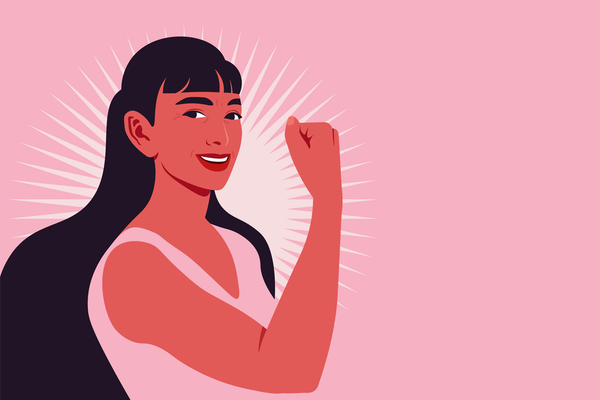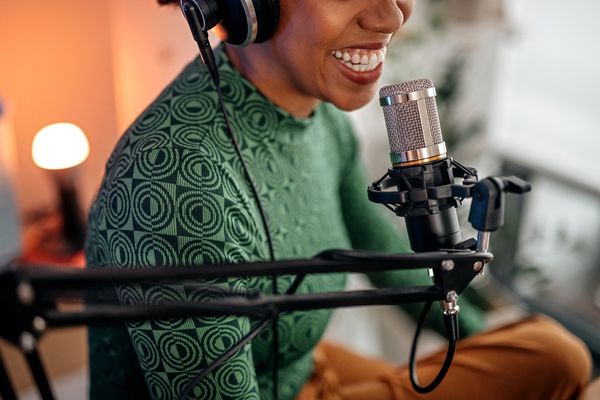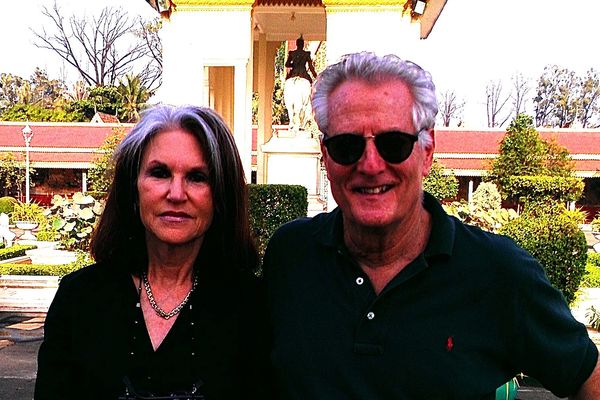It's back-to-school season. Even if we aren't going back to school, even if our children are grown and even if we don't have children, September smells like pencil erasers (do you prefer pink or white?) and makes us want to get up a little earlier, with more intention.
We all arrive at September from different places. For some, summer is a lazier time. Lazy in the most delicious sense of that word. A period during which we can get up later, work less and allow our regimens to slacken. Labor Day marks the moment to pick up the pace and get disciplined again. For others, summer might be when we ramp up. I feel incredibly fortunate, because I get to spend six weeks of summer in the California mountains. But the call of the mountain trails means that I increase my activity level by quite a bit. Because there are few social obligations and dinners out, it's also a period of increased solitude for my partner and me, which means I can write/work more, eat healthier and get more sleep.
For me, Labor Day is when I often hit a little well-being trough. I'm re-learning how to enjoy my indoor workouts, dealing with the distractions of the city and the calendar full of things to do. I love New York City—movies, theatre, music, restaurants. I love my friends and miss them hugely when I'm gone. As much as I'm always wanting to get back to all that spice of life, the rhythmic shift from mountains to city is a bump.
Wherever we're coming from, September is a time for renewal. In January we make resolutions. In September we make commitments. These are realistic undertakings we can stick with, not pie-in-the-sky resolutions for a whole new self. We don't need a whole new self. We just need to refresh our well-being pledge. And I mean well-being in a holistic sense, including physical activity, nourishing food, mindfulness, sleep, engaging work, supportive communities. In other words, the panoply of factors that enable us to flourish, to be fulfilled, to live with purpose. If this list sounds overwhelming, don't stress! The goal is not to make big, stretch commitments that ultimately discourage us because we can't achieve them. What's important is to plant the seeds of well-being in fertile ground. To commit in a way that encourages our enthusiasm.
In that spirit, here are three thought-seeds to cultivate your back-to-school well-being.
First, our health is a foundational resource on which we build our well-being. We take care of our health, so we can have maximum bandwidth for all we want to do in the world. When we look at our health with this broad lens, we reduce the pressure (I don't know about you, but I don't need more). Specific goals we might have about how many times we want to go to the gym, how many miles we want to run, how often we want to meditate, or how many pounds we want to lose, are put into the context of the bigger picture of our life. The process matters more than the outcome. Committing to your health is a key piece in the well-being puzzle, because it serves us. Good health makes it easier to handle all the other stresses of life.
Second, it's better to do something short than do nothing at all. Don't get discouraged if you committed to getting to the gym five times a week and it's only happening three. Instead, find creative ways to get closer to your plan. Spend 15 extra minutes at the gym on those days you do get there. Or, on the days you "should have" gone to the gym, do 10 minutes of strength-training exercises at home or in your office. Squats. Lunges. Planks. Pushups. Crunches. Burpees. You don't even need to do the whole 10 minutes at once. Do 10 squats in between projects throughout the day. The surprise is how effective such short bursts of energy can be.
The same goes for other facets of our health. If you want to alter eating habits, a radical diet change is not the only solution. Small, incremental improvements -- one less bite of processed food, or one extra raw vegetable -- is a good start. If you want to begin meditating, don't start with a 30-minute daily practice. Start with 10 minutes, three times a week. Every action you take adds up. What's important is intention and noticing. Intend to up your game. Notice what you are doing (and be honest with yourself).
Third, just as our good health gives us more energy for other parts of our life, we also source energy from our work, our families, our interests and our leisure time that fuels our mind, our body and our entire being. When we are jazzed by living, we have more energy to pay attention to our health. And when we are healthy, we have more energy to spend everywhere else in our life. This is what's called a virtuous cycle. Our well-being feeds on itself, fanning the fire in our belly. Create more energy in the cycle by doing something ennobling. The action doesn't need to cost a lot of time, nor need it be showy and praise-seeking (in fact, better if it isn't). It could be as small as cleaning up after yourself at the coffee shop. Letting someone harried go in front of you in line. Sending a handwritten note to someone you've been out of touch with. That's gas in the tank that will drive your commitments another few miles.
Be gentle, yet rigorous with yourself. Approach your commitments with enthusiasm and let them feed your energy in everything you do.
MINA SAMUELS is a writer, playwright and performer, and in a previous incarnation, a litigation lawyer and human rights advocate. Her books include, "Run Like A Girl 365 Days: A Practical, Personal, Inspirational Guide for Women Athletes" (Skyhorse Press; June 2019), "Run Like a Girl: How Strong Women Make Happy Lives" (for which she appeared on The Today Show); a novel, The Queen of Cups; and The Think Big Manifesto, co-authored with Michael Port.







